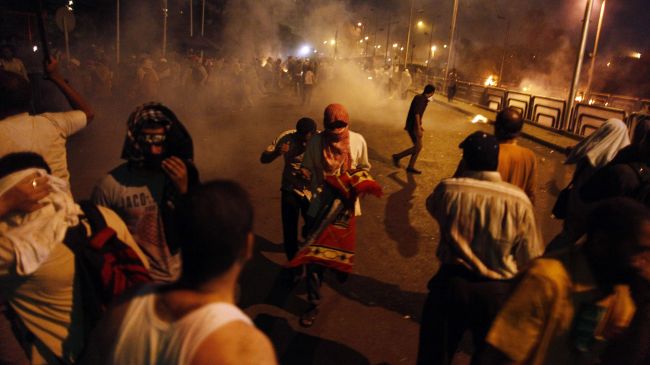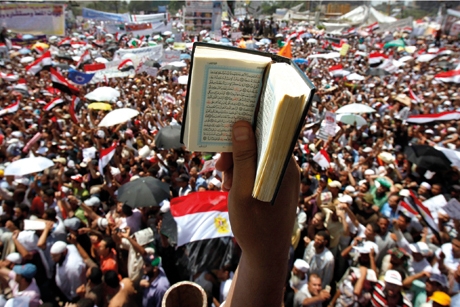The numbers tell an alarming tale: in less than two years, more than 60,000 have died in Syria. Since August 2012, more than 5000 Syrians have been killed every month, a rate of almost 170 per day. The International Community looks on helplessly as UN special representative Lakhdar Brahimi submits draft proposals and presidents and prime ministers mouth fine words… And still, the civil war grinds on, with its daily reports of atrocities and manipulation. Amid the confusion, we must bear in mind several basic principles before attempting to draw conclusions. Now is not the time for naiveté and illusion.
Bashar al-Assad heads a dictatorial regime founded on usurpation and corruption, a regime that has never hesitated—dating from his late father’s decade-long rule—to kill and torture its opponents by the tens of thousands. Terror has become domestic policy. Syria’s role in Lebanon, where it sponsored a complex web of alliances and exploited internal divisions, has been a murky one at best. On the Israeli front, while it stands accused of indiscriminately supporting Palestinian resistance groups, Syria has provided successive leaders in Tel-Aviv with a “useful enemy.” Beneath its stern and sometimes fiery rhetoric, the Syrian government has been curiously passive, even following direct attack by Israel, as when an allegednuclear facility was destroyed in September 2007.
Syria, alongside Iran, is presented as an enemy of Western interests; as a country that cannot be trusted, and from which the worst is to be expected. But when Syrians began to take to the streets, and when civilians were dying in their hundreds at the hands of the regular army, it took the American administration and European governments more than eight months to change their tune—and their Syria policies. The courage and the determination of the Syrian population did not reflect Western plans and interests in the region. For more than eight months, the United States and Europe did little more than call upon Bashar al-Assad to undertake “democratic” reforms.
With uprisings breaking out in Egypt, Tunisia, Libya and Yemen; with tensions running high in Jordan and Bahrein, and with the growing power of Iran looming on the horizon, the West played for time, and sought reliable interlocutors within the quarrelsome and divided Syrian opposition. At the same time, Russia and China pursued their strategic offensive. Both countries have a growing geostrategic and economic profile in the region, and both were sharply critical of the intervention in Libya, where a UN resolution provided all the pretext the Western powers needed to eliminate Qaddafi and take over the country’s natural resources. But none of the protagonists had the stomach for a replay of the Libyan scenario.
American and European positions have shifted in recent months, while pressure against the Syrian government has increased. Official support for the Syrian opposition and Free Syrian Army has firmed up. Saudi Arabia and Qatar have emerged as full participants, directly financing and arming the political and military opposition. Neighboring Turkey altered its “no problems with neighbors” policy to one of active support for regime change in Damascus. Beijing and Moscow, meanwhile, continued to back Bashar al-Assad (while hinting that they might contemplate a future without him). Painfully, laboriously, all the pieces on the chessboard have been maneuvered into place to create a stalemate. Neither a political or a military outcome seems possible; the civil war drags on, and the number of deaths grows day by day.
In American terminology, Syria has become the theater of a regional “low-intensity conflict,” under control and, cynically, more useful than harmful. The dividends may prove substantial in both the short and long term. The Middle East is deeply destabilized and sharply divided on many fronts: politically, the tension between secularists and Islamists remains high; divisions among the Sunnis themselves are tangible (Salafi literalists, reformists, Salafi jihadists, etc.) and the fracture between Sunni and Shia has emerged as one of the key factors in the volatile Middle-eastern equation.
To this explosive brew must be added political alliances, old and new: the non-democratic and pro-Western Gulf states, the changing face of power in Egypt, Tunisia and Libya, instability in Iraq and Lebanon, and finally, the ostracism of Iran. The Middle East is in the throes of crisis and the West, like China and Russia (not to mention Turkey and India) are attempting to reposition themselves and to protect their economic and geostrategic interests. The shift in focus of tensions has worked to Israel’s advantage: the country is going through a domestic crisis, but the weakening and division of the Arab countries allow Israel’s American ally to maintain and reinforce cooperation and coordination, and for the Israeli regime to pursue unhindered its inexorable colonization of Palestinian lands.
We can—and must—oppose the autocratic regime of Bashar al-Assad, but without falling into the trap of oversimplifying the conflict, or of blind support for the resistance. The Syrian opposition, by virtue of its structure, does not inspire confidence; several of its allies, judging by their declared and undeclared intentions, are outright dangerous. In the face of growing confusion, we must combine a principled position (opposition to the dictatorship) with political analysis and vigilance that leaves no room for naiveté (unconditional support for the opposition). The West, China and Russia appear to have agreed in the short term to disagree, a cynicism the Syrians will pay for with their lives. Worst of all, no viable alternative exists, no other solution except that imposed by force of arms. The conflict will be long and bitter; thousands more will die. Once freed of the despot, it is far from certain that the Syrian people will be free of foreign domination. In fact, the opposite seems by far the most probable outcome.
Source : Gulfnews : http://gulfnews.com/opinions/columnists/high-stakes-game-in-syria-1.1128902










frère Tariq laissez les vous attaquer car ils n’ont rien d’autre à faire par contre ne répondez pas car vous avez mieux et beaucoup à faire. Que Dieu vous console et vous aide.
a scrimmage between Palestinians and Israeli killed few Palestinians and fewer Israeli, with huge media hype followed shortly and hundreds of Syrians die every day followed by complete silence
Human life is precious regardless who is the killer and who is the victim
I totally agree with the last post, many thanks for raising this point; I have been condemned for saying this same point by people. I’ve been saying for years how unfair the focus on human loss in other countries, which is not even mentioned on the news – for example massacres in Africa, in west China, and other « un-important countries » due to no resources or political importance they automatically become a sub-human entity! May Allah forgive us all for the lack of equality and consistent strive for justice for ALL humanity, not just a select few.